Over the past decades, high fructose corn syrup has emerged as a better alternative to sugar. It’s found in thousands of foods, from cereals and fruit juices to low-carb chocolate and protein bars.
The Role of Vitamin B12 in Health and Well-Being

The Role of Vitamin B12 in Health and Well-Being
If you’re a vegan or vegetarian, you’ve probably been told that you might be deficient in vitamin B12. Also known as cobalamin, this nutrient is mostly found in animal foods. Your body cannot produce it on its own, so it must be obtained from food.
The question is: why do you need vitamin B12 in the first place? Is it really that important? Let’s see what experts say!
Vitamin B12 and Your Health
About 40 percent of the American population is deficient in vitamin B12. This increases their risk of depression, fatigue, anxiety, and vision problems. Pale skin, dizziness, migraines, and lethargy are just a few of the many side effects of vitamin B12 deficiency.
This nutrient plays several key functions in the body. It regulates your energy levels, supports bone growth and development, prevents nerve damage, and keeps your brain healthy. Vitamin B12 also reduces homocysteine levels in the bloodstream, which helps prevent cardiovascular disease. Your brain needs it to function properly and synthesize red blood cells.
The human body can store this vitamin for as long as four years. Yet, most people have low levels of this nutrient in their system. Vegans, diabetics, seniors, and those with inflammatory bowel disorders are the most likely to become deficient.
Also, athletes need vitamin B12 in larger doses compared to the average person. For this reason, they often use vitamin B12 supplements or injections. This nutrient provides energy to the working muscles, regulates metabolism, and supports tissue repair. Your skin, hair, and nails need this nutrient too.
What Are the Best Sources of Vitamin B12?
This water-soluble vitamin occurs naturally in meat, fish, and dairy. The best sources include sardines, beef liver, wild-caught salmon, lamb, and Atlantic mackerel. One serving of beef liver, for instance, provides over 300 percent of the recommended daily intake of vitamin B12.
Certain plant-based foods contain this nutrient too, but just in trace amounts. Vitamin B12 levels are extremely low or even undetectable in most legumes and vegetables. A good source is nutritional yeast, which delivers 40 percent of the daily recommended intake per tablespoon.
If you’re concerned about vitamin B12 deficiency, consider taking supplements. Most multivitamins contain this nutrient. Ideally, get at least 2.4 micrograms per day – or up to 2.8 micrograms if you’re breastfeeding.









No comments yet.